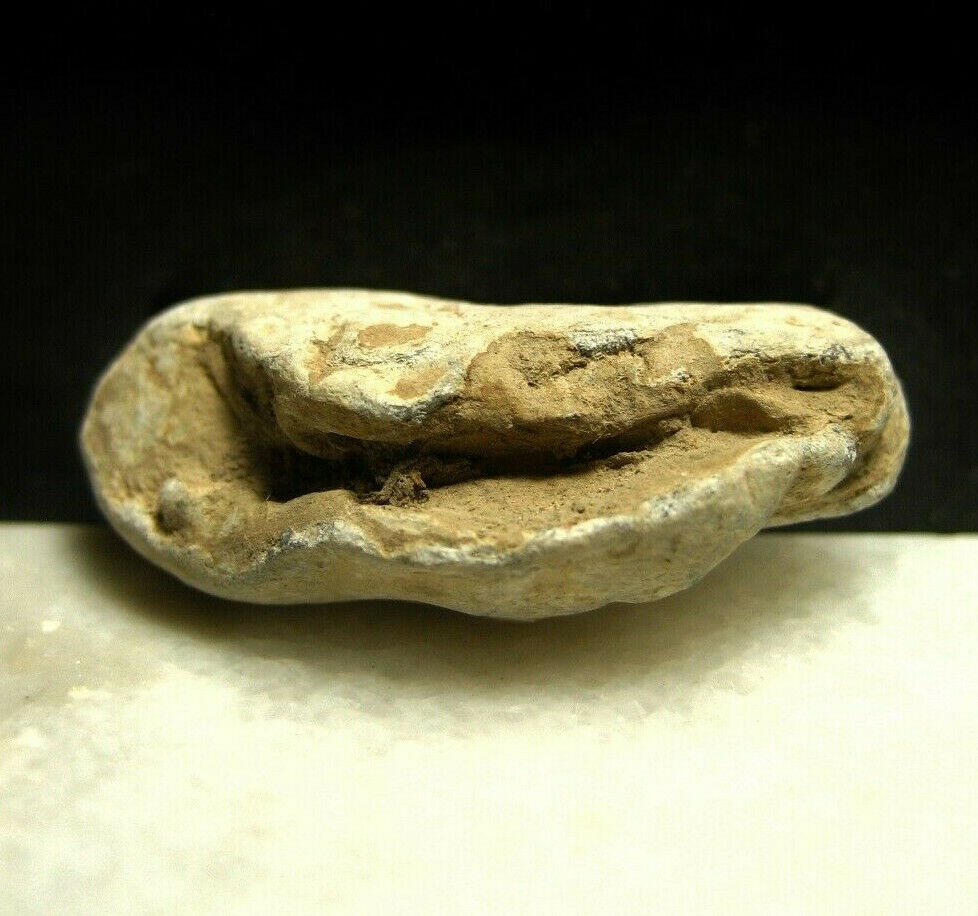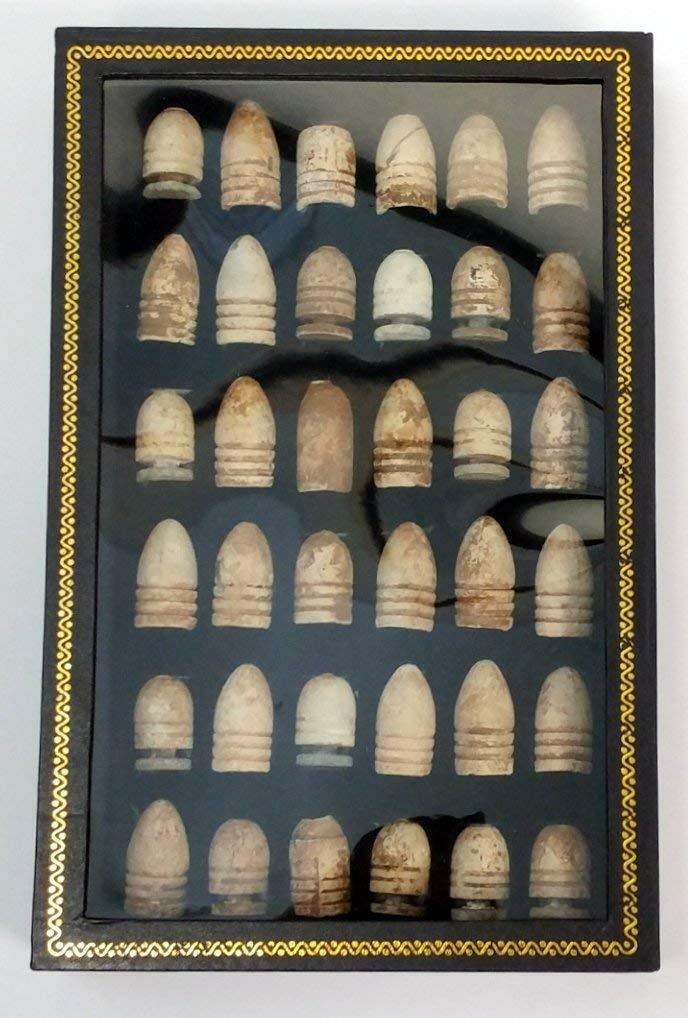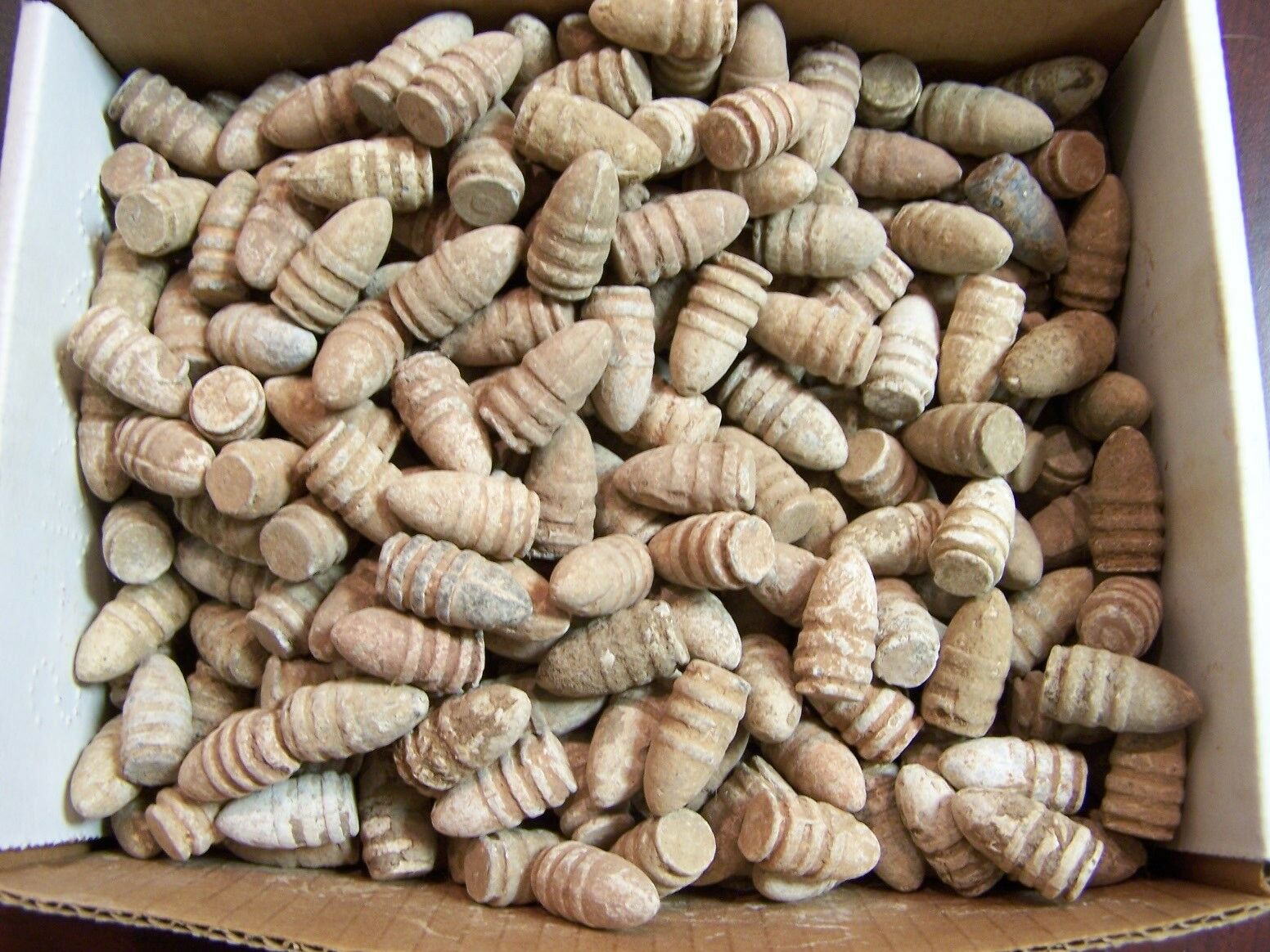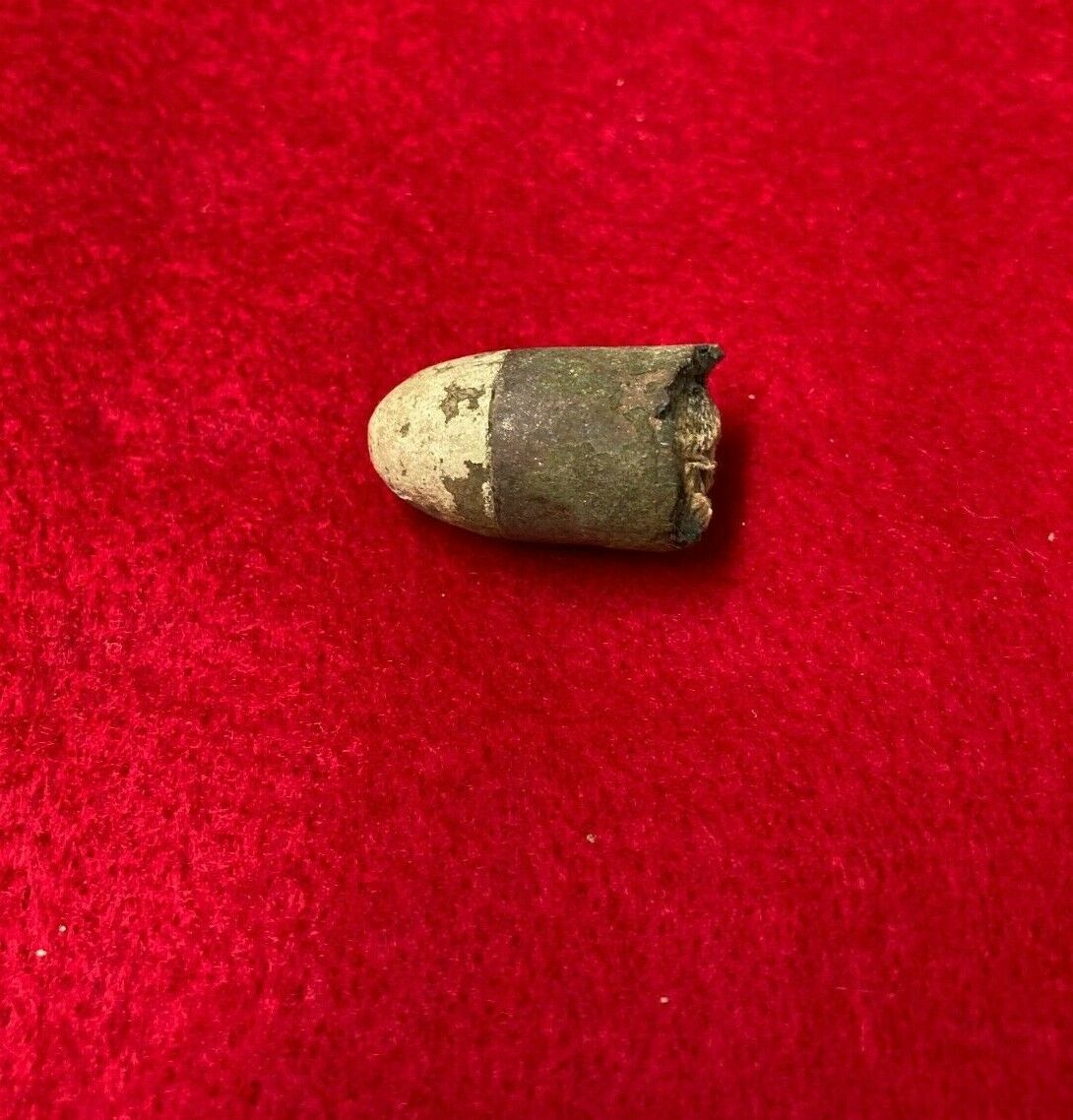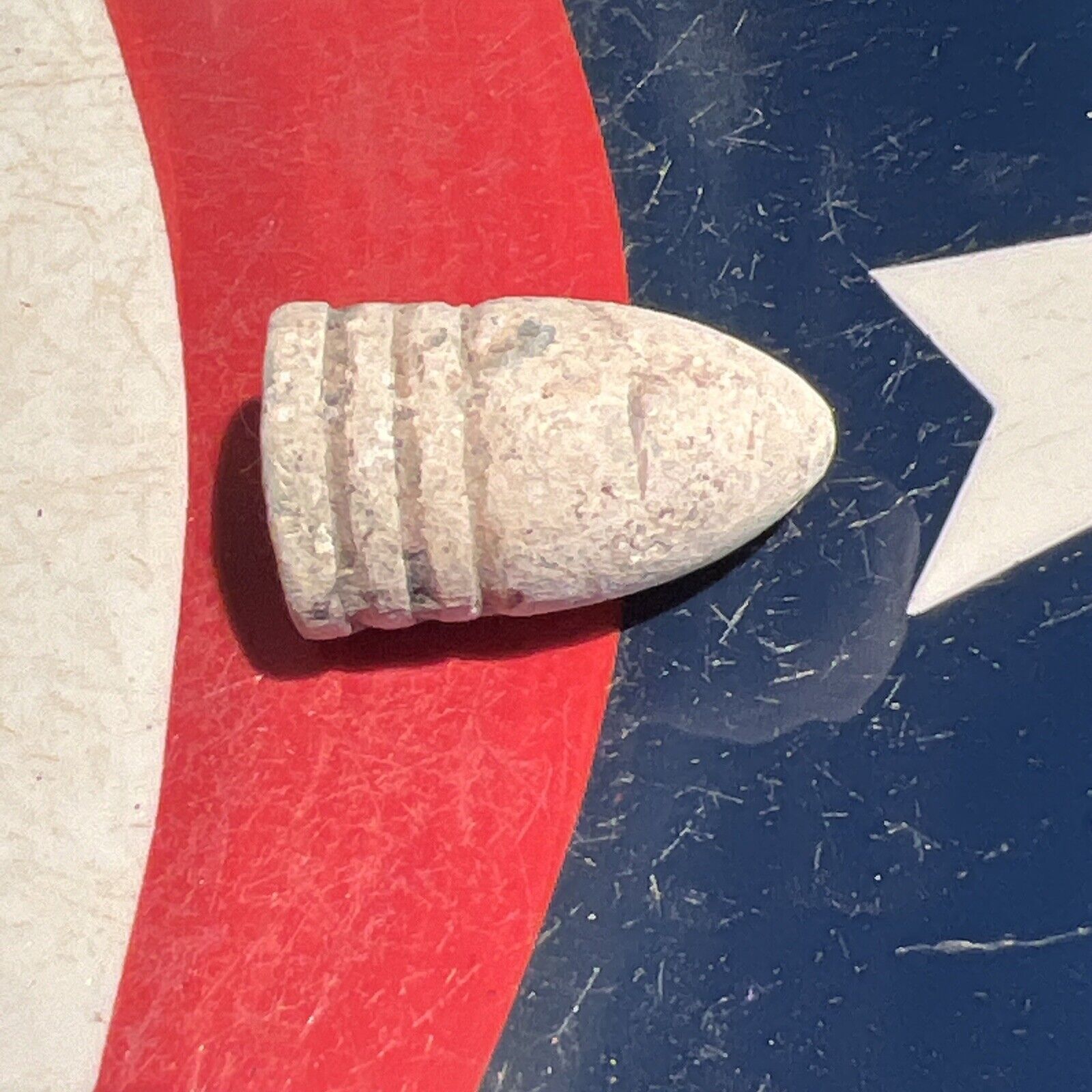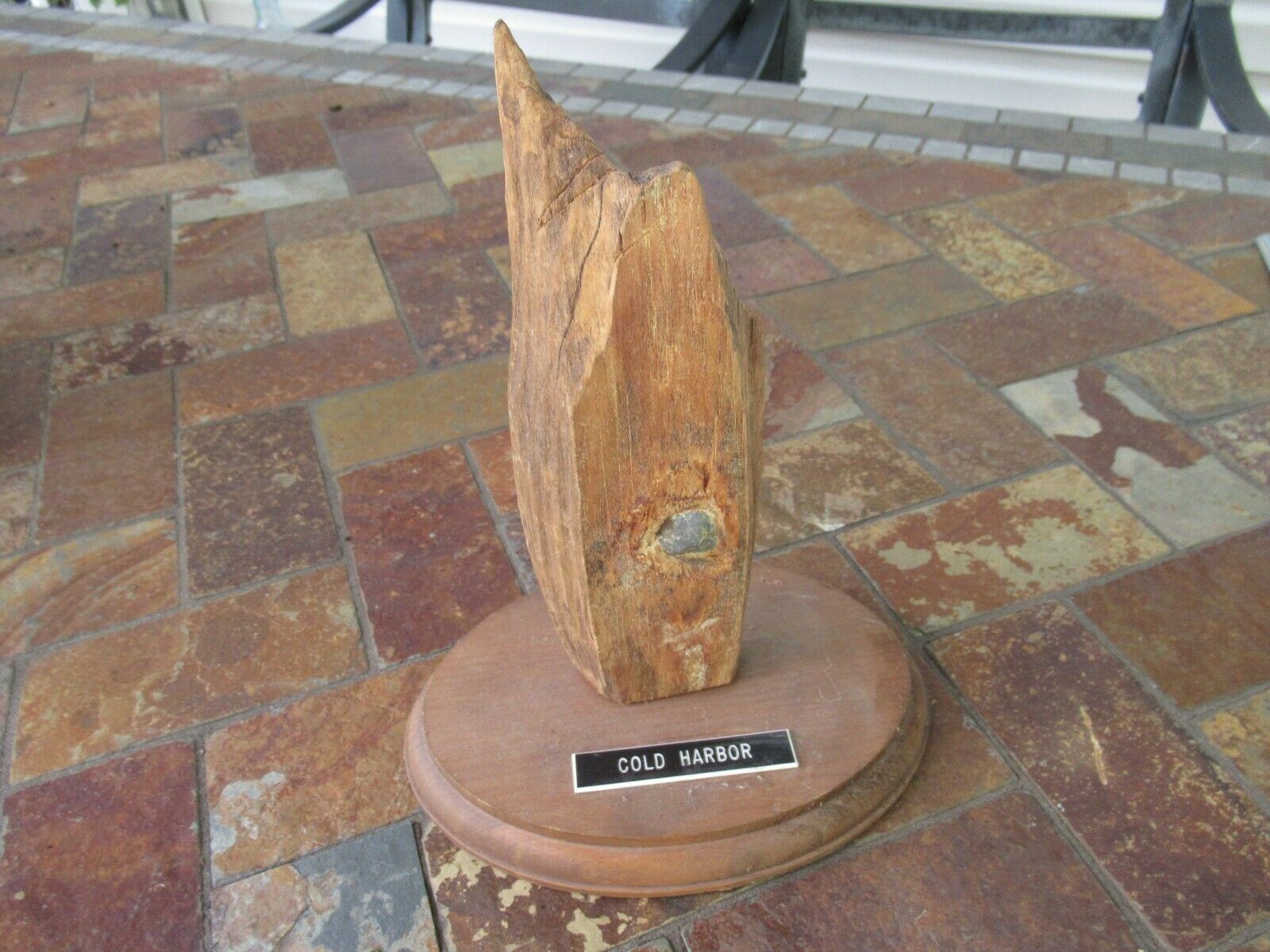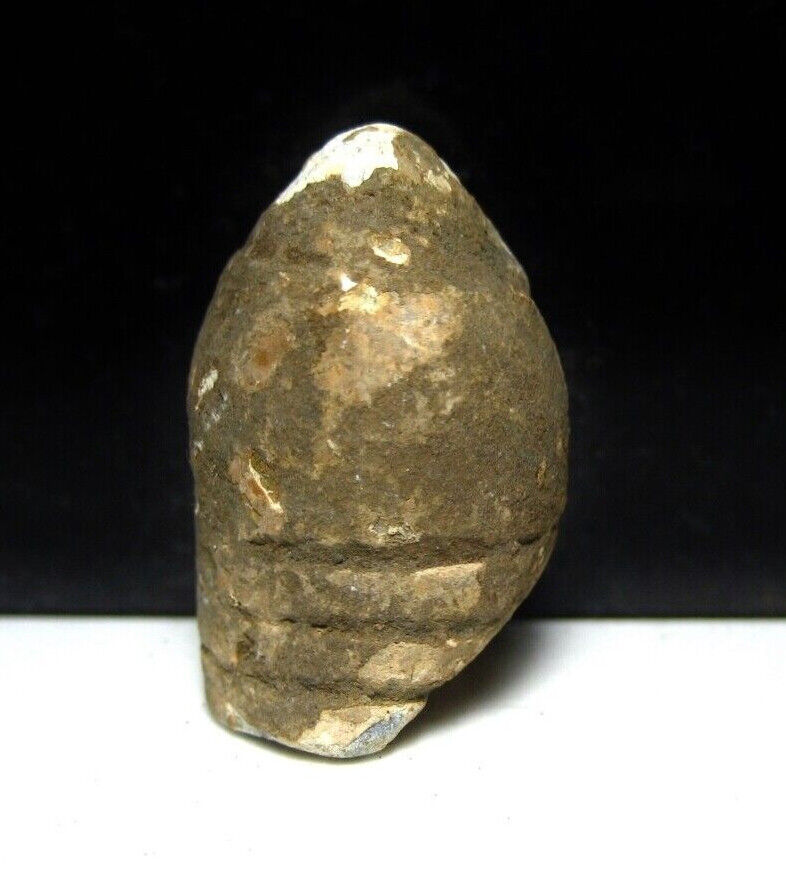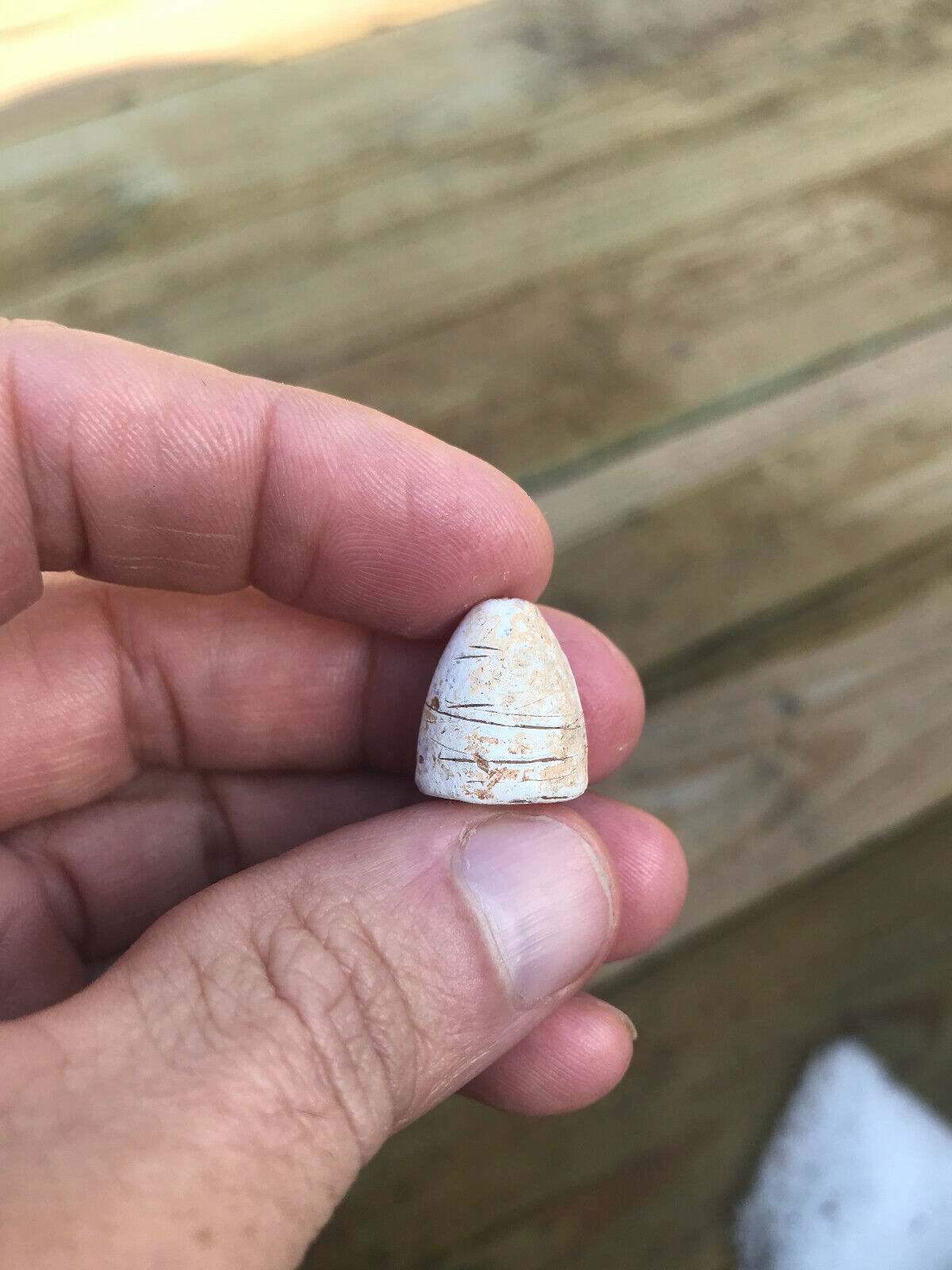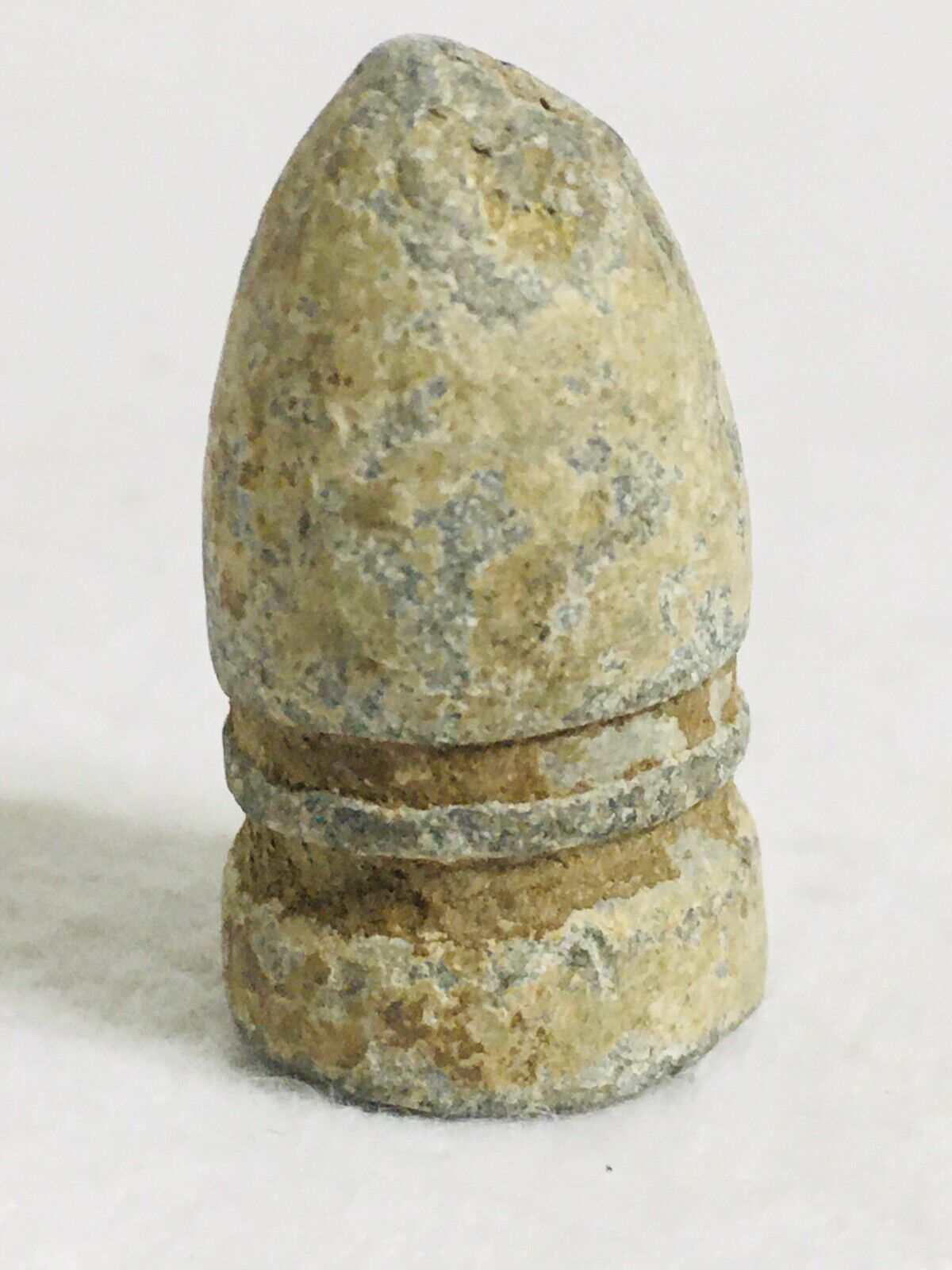-40%
Gettysburg The Trostle Farm Dug Civil War Battle Relic Fired Bullet Rosensteel
$ 21.12
- Description
- Size Guide
Description
We are working as partners in conjunction with Gettysburg Relics to offer some very nice American Civil War relics for sale.THE BATTLE OF GETTYSBURG - THE TROSTLE FARM - ROSENSTEEL FAMILY -
extremely mangled, folded High impact bullet, which, judging by the shape and possible traces of rings, appears to have been a 3-ring Bullet that hit a tree/wood.
This extremely mangled, folded High impact bullet, which, judging by the shape and possible traces of rings, appears to have been a 3-ring Bullet that hit a tree/wood. It was found on the Trostle Farm at Gettysburg, PA. This artifact was a part of the collection of Iva Rosensteel, sister of George Rosensteel (founder of the Gettysburg National Museum and the famous Electric Map) so the provenance could not be better. This is the first time that this artifact is being offered for public sale and I feel very privileged in the opportunity to offer it. The Rosensteels were, of course, the most famous artifact collecting family in Gettysburg and the bulk of the relics on display at today's Gettysburg National Park Visitor Center come from the Rosensteels. A provenance letter will be provided with this relic.
The Trostle farm is south of Gettysburg on what is now United States Avenue. The farm was owned by Peter Trostle. His son Abraham, Abraham’s wife Catherine, and their nine children occupied it during the battle. The 134 acre farm included a new frame house, brick barn, corn crib, wagon shed, springhouse, and a brick smokehouse.
During the battle
Major General Daniel Sickles used the farm as his headquarters after he advanced his Third Army Corps to the line of the Emmitsburg Road on July 2nd. He was wounded in the field to the west of the barn, where a monument now stands.
The Trostles were abruptly forced from their home during the fighting. They left dinner on the table, which was enjoyed by Sickles’ staff. Like many of their neighbors, the Trostles returned to find most of their belongings looted or destroyed.
The 9th Massachusetts Battery fought a desperate last stand on the farm. At least sixteen dead battery horses were in the front yard and over a hundred on the farm. Damage to property and real estate was estimated a ,500 in a claim filed after the war, but it appears no compensation was ever paid.
The Trostle heirs sold the farm to the Park Service in 1899. You can still see battle damage, including the famous shell hole in the brickwork of the barn. The Park Service uses the house as a dorm for college history interns doing summer studies at the park.
Thank you for viewing!
